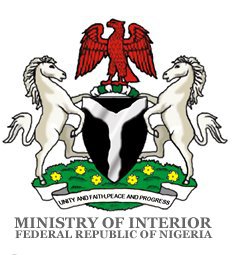NAPTIP Apprehends 116 Human Traffickers, Rescues 1,489 Victims In Kano

The National Agency for the Prohibition of Trafficking in Persons (NAPTIP) on Thursday said it apprehended no fewer than 116 human traffickers and rescued 1,489 victims in four years in Kano zone.
The Zonal Commander in charge of Kano, Shehu Umar, made this known during a press briefing in Kano.
Umar said that the command received 1,516 cases which involved 1,014 human trafficking acts both internally and externally.
He said the cases included 117 child abuse, 75 child labour, 109 sexual abuse, 13 rape cases and 188 other cases on Violence Against Persons Prohibition (VAPP Act) from 2016 to July, 2020.
He said the cases involved 473 males and 1,028 females.
Read Also:
The commander added that the agency arrested 91 male suspects, and 25 female suspects and rescued 1,022 females as well as 467 male victims between the ages of six and 25 years within the period.
“We still have nine pending cases, eight in Federal High Court, one in Appeal Court, six new cases to be filed and secured 20 convictions from 2016 till date.”
He explained that the command also rescued 107 human trafficking victims,
aged between six and 32 years, at Malam Aminu Kano International Airport (MAKIA) as their sponsors tried to take them out of the country.
Umar further revealed that the command received 8,777 deportees who arrived in Kano through MAKIA, made up of 3,708 males and 5,069 females.
He said the agency’s public enlightenment department carried out 278 sensitisation campaigns, including radio and television programmes.
He urged the government and relevant stakeholders to provide NAPTIP with more operational vehicles, investigation equipment such as cameras and walkie-talkies, and more funding.
“I believe that with more funds we would do better, we need to move from analogue to digital system of operation to improve our investigation capabilities.
“We are facing the problems of inadequate data on human trafficking issues, many rape victims do not report cases,” he said, adding that the absence of officers of the command at airports and borders also hindered the work of the agency.



